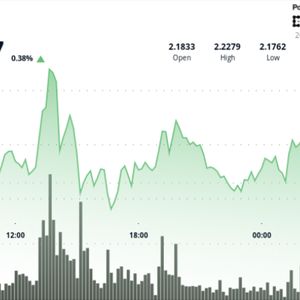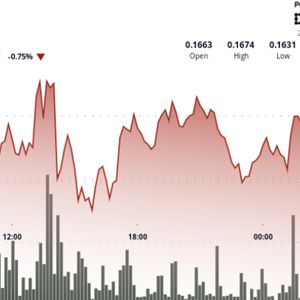Brussels plans to bring in new rules for stablecoins, even though the ECB warns those rules could shake up banks when markets get volatile. The European Commission, the EU’s executive branch, plans to issue formal guidance in the coming days, according to the Financial Times . This will allow stablecoins made outside the union to count the same as those issued inside when they bear the same brand. People familiar with the plan say this will close a legal loophole around these bank-free digital currencies. This announcement follows remarks by ECB president Christine Lagarde to the European Parliament on Monday. She warned that “stablecoins… pose risks for monetary policy and financial stability [and] must therefore be governed by sound rules, especially when they operate across international borders”. Stablecoin market booms while regulation struggles to keep up Stablecoins aim to hold the same value as a country’s currency, most often the US dollar. They are backed by liquid assets kept in reserve. Around $250 billion of these tokens are now in circulation, and analysts predict the market could grow tenfold within years. US Treasury Secretary Scott Bessent said this month the total might reach $2 trillion globally and could “reinforce US dollar supremacy”. US lawmakers are close to passing the Genius Act , the first set of rules to oversee the market. Yet central banks have grown wary of laws that spur growth, yet may leave loopholes. The ECB has argued that if coins issued abroad are treated as identical, a rush of redemptions could put pressure on banks in the EU. Under current EU rules, stablecoins created inside the bloc must hold most of their reserves at an EU bank and let holders redeem tokens for cash directly. The ECB says treating non-EU coins the same could increase the risk of a run on reserves and put pressure on other banks. Lagarde warned lawmakers that if redemptions “are amplified by large developments and possible difficulties in any stablecoins, the European safeguards, backups, and deposits will be exposed.” EU institutions split on risk and oversight Diego Ballon Ossio, a partner at Clifford Chance in London, said rules in different countries can clash. “Technically, purely from a legal perspective, you couldn’t say that the coins are fungible,” he said, adding that EU law ties regulation to the issuer, not the token. On Tuesday, the Bank for International Settlements said stablecoins “perform badly” on key tests for use as money. It said they are not backed by a central bank, lack enough guardrails to prevent illicit activity, and do not have the funding flexibility of banks that lend money. Inside the EU, the commission and the ECB have clashed in private meetings this year. According to participants, the commission pushed back on the bank’s warnings. A commission spokesperson said a run on a well-run, backed stablecoin was “very unlikely” and that if one did occur, “foreign holders would redeem their tokens in [for example] the US, where the majority of the tokens circulate and the majority of the reserves are held.” A cryptocurrency executive said the ECB’s warnings partly reflect fears that a stablecoin operator’s reserves might sit in a country with a small banking system. The executive also said the ECB wants to push its own central bank digital currency to compete with private stablecoins. To add safeguards, ECB officials proposed asking other countries for legal guarantees that they could transfer stablecoin reserves to the EU in a crisis. They noted there are no current agreements between the EU and other nations on matching regulatory standards. A commission official said at a closed-door meeting that guarantees were unnecessary, prompting an ECB attendee to ask, “Do we need to trust them blindly that they will transfer the assets [in case of a run on EU reserves]?” Instead, the commission proposed that national supervisors make their own risk assessments and demand extra safeguards when needed. Andrea Resti, a professor of financial risk management at Bocconi University in Milan, warned that this approach could lead to uneven oversight. He said, “European supervisors issue authorisations in very tight timelines and without enough due diligence. Everything would be left to the artisan initiative of national supervisors.” Cryptopolitan Academy: Tired of market swings? Learn how DeFi can help you build steady passive income. Register Now

















